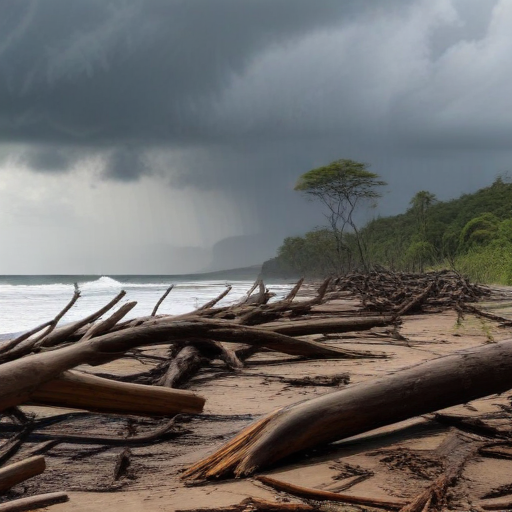Residents of Mayotte are grappling with the devastating aftermath of Cyclone Chido, described as the most severe storm to strike the French Indian Ocean territory in nearly a century. With wind gusts surpassing 225 km/h (140 mph), the cyclone has devastated several areas, particularly affecting the poorest communities living in makeshift sheet-metal homes. One resident in the capital, Mamoudzou, expressed distress over the lack of water for three days, while others are facing hunger and thirst.
In response to the crisis, French President Emmanuel Macron announced his planned visit to Mayotte to support the ongoing rescue efforts, which involve both local and external aid workers. Current estimates indicate at least 20 confirmed deaths, but many believe the toll could reach into the thousands, especially among undocumented migrants, complicating rescue operations due to the extensive damage to infrastructure.
The power supply is severely disrupted, with about 85% of the territory currently without electricity, and only 20% of phone lines operational. Although some areas are starting to receive tap water, its quality remains a concern, with reports of discolored, unusable water. As the healthcare system faces degradation, midwife Amalia Mazon voiced feelings of abandonment and uncertainty regarding aid.
Historical context reveals that Mayotte has struggled with economic challenges and high unemployment rates, with about 75% of the population living below the national poverty line. Many residents have shared harrowing accounts, comparing the devastation to the aftermath of a nuclear disaster, while local authorities warn that the full extent of the tragedy may only become clear in the coming days as rescue efforts continue.
As the relief operation unfolds with the arrival of French soldiers and volunteers, challenges for the most vulnerable communities remain pronounced. The impact of climate change on the intensity of such storms is a growing concern, as Cyclone Chido has already weakened but continues to pose risks in Southern Africa, including Mozambique, which has seen its own damages.
While the immediate outlook appears grim, the mobilization of national and international aid, coupled with the resilience of local communities, offers hope for recovery. Support from the French government and humanitarian organizations may pave the way for rebuilding efforts, fostering a spirit of solidarity and assistance in the face of disaster.
Summary: Cyclone Chido has inflicted severe damage on Mayotte, with many residents suffering from the lack of water, food, and shelter. President Macron plans to visit and support recovery efforts, while aid is being mobilized amidst a backdrop of significant destruction and loss of life. The event highlights concerns around climate change and its impact on storm intensity, yet offers a glimmer of hope through international support and community resilience.
